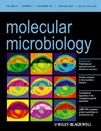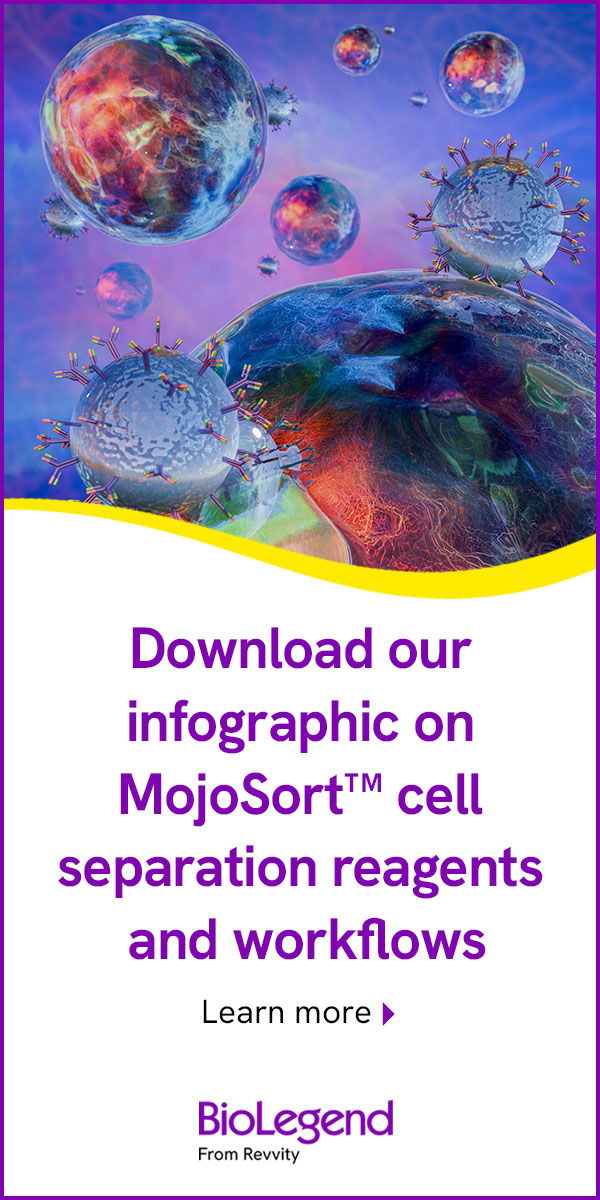- Submit a Protocol
- Receive Our Alerts
- Log in
- /
- Sign up
- My Bio Page
- Edit My Profile
- Change Password
- Log Out
- EN
- EN - English
- CN - 中文
- Protocols
- Articles and Issues
- For Authors
- About
- Become a Reviewer
- EN - English
- CN - 中文
- Home
- Protocols
- Articles and Issues
- For Authors
- About
- Become a Reviewer
Macrophage Infection by Dimorphic Fungi
Published: Vol 2, Iss 14, Jul 20, 2012 DOI: 10.21769/BioProtoc.236 Views: 12289

Protocol Collections
Comprehensive collections of detailed, peer-reviewed protocols focusing on specific topics
Related protocols

In Vitro Hyphal Branching Assay Using Rhizophagus irregularis
Takaya Tominaga and Hironori Kaminaka
Aug 20, 2024 2316 Views

Silencing Arbuscular Mycorrhizal Fungal Gene Using Chitosan Nanoparticle-Mediated dsRNA Delivery System
Chumei Yan [...] Xianan Xie
Jun 5, 2025 2635 Views

A Reliable In Planta Inoculation and Antifungal Screening Protocol for Rhizoctonia solani-Induced Sheath Blight in Rice
Alinaj Yasin [...] Palash Deb Nath
Nov 5, 2025 1568 Views
Abstract
Mammalian infection by dimorphic fungi occurs through the inhalation of asexual spores (conidia), which are phagocytosed by host pulmonary alveolar macrophages of the innate immune system. Once phagocytosed, fungal conidia germinate into the pathogenic cell type; unicellular yeast cells which divide by fission (Vanittanakom et al., 2006; Boyce et al., 2011). To investigate if mutation of a particular fungal gene affects macrophage phagocytosis or the production of yeast cells, a murine macrophage cell culture assay can be utilized. This protocol was developed for Penicillium marneffei but is applicable to most dimorphic fungi.
Materials and Reagents
- Lipopolysaccharide (LPS) from E. coli (Sigma-Aldrich, catalog number: L2630 )
- Flask (or petri dish) of confluent J77A murine macrophages (available from Sigma-Aldrich, catalog number: 91051511 )
- 10x Trypsin-EDTA solution (Life Technologies, Gibco®, catalog number: R-001-100 )
- 1 x 107/ml fungal conidia (suspended in 0.001% Tween 20) (harvested from a 10 day 25 °C agar plate)
- 1 mg/ml fluorescent brightener 28 (calcofluor) (Sigma-Aldrich, catalog number: F3543 )
- 70% ethanol (any supplier)
- NaCl (ChemSupply, catalog number: SA046 )
- KCl (ChemSupply, catalog number: PA054 )
- MgSO4 (ChemSupply, catalog number: MA048 )
- NaOH (ChemSupply, catalog number: SA178 )
- Na2HPO4 (Thermo Fisher Scientific/Ajax Finechem Pty, catalog number: A621 )
- KH2PO4 (Merck KGaA, product number: 1048729025 )
- Fetal bovine serum (FBS) (Life Technologies, Gibco®, catalog number: 26140 )
- Penicillin streptomycin solution (Sigma-Aldrich, catalog number: P0781 )
- L-glutamine (Sigma-Aldrich, catalog number: 59202C )
- Dulbecco’s Modified Eagle’s Medium (DMEM) (Sigma-Aldrich, catalog number: D6546 )
- Paraformaldehyde (Sigma-Aldrich, catalog number: P6148 )
- PIPES (Sigma-Aldrich, catalog number: P6757 )
- EGTA (Sigma-Aldrich, catalog number: E4378 )
- Tween 20 (Sigma-Aldrich, catalog number: P1379 )
- 4% fixation solution (see Recipes)
- Phosphate buffered saline (PBS) (see Recipes)
- Complete DMEM (see Recipes)
- 0.001% Tween 20 (see Recipes)
- PME buffer (see Recipes)
Equipment
- Standard tabletop centrifuges
- Clyde-Apac BH2000 Series Biological safety cabinet class II
- Leica Microscope with a UV filter (Reichert-Jung)
- Refrigeration centrifuge with a swing bucket rotor (Beckman Coulter, model: TJ-6 )
- Cell culture incubator (37°C, 5% CO2)
- Bunsen burner
- Well sterile cell culture plate (Greiner Bio-One, catalog number: 657160 )
- Disposable, sterile 10ml pipettes (Corning Incorporated/Costar stripettes, manufacture number: 4488 )
- Sterile 10 ml centrifuge tubes (any supplier)
- 22 x 22 mm standard microscope coverslips (any supplier)
- 76 x 26 mm standard microscope slides (any supplier)
- Nail varnish (any supplier)
- Biological safety cabinet
- Haemocytometer
- Tweezers
- 25 cm2 small flask
- 75 cm2 big flask
Procedure
Note: All steps performed in the Biological Safety Cabinet. Use sterile materials and reagents and aseptic techniques. All incubation steps are at 37 °C, 5% CO2 in a cell culture incubator unless indicated.
Day 1
- In the biological safety cabinet, gently remove the culture media from the flask (or petri dish) of confluent J774 murine macrophages and discard.
- Gently wash the cells 1x with 10 ml PBS.
- Add 1x Trypsin-EDTA solution to detach the cells (1 ml for a 25 cm2 small flask, 2.5 mL for a 75 cm2 big flask).
- Incubate for 30-60 min in the cell culture incubator to detach the cells.
- Add complete DMEM media to stop the digestion (4 ml for small flask, 7 ml for big flask) and transfer the cells into a sterile 10 ml centrifuge tube.
- Pellet the cells by centrifugation for 8 min at 1,500-1,800 rpm.
- Pour off media and discard and resuspend the cell pellet in 1 ml complete DMEM media. Calculate the concentration of cells using dilutions in PBS and a haemocytometer (want to add 1 x 105 cells total).
- Holding with fine tweezers, dip a coverslip into 70% ethanol, dab off excess ethanol by placing edge of the coverslip on a tissue and pass through the flame of a Bunsen burner to sterilze. Place the sterile coverslip into the well of a 6 well sterile cell culture plate. Repeat, placing a coverslip per well.
- Add 2 ml of complete DMEM media to each well of the 6 well cell culture plate. Add 1 x 105 macrophages per well. Incubate in the cell culture incubator overnight (24 h).
Day 2
- Add 0.1 µg/ml LPS (in total volume) to each well of the 6 well cell culture plate. Incubate overnight (24 h) in the cell culture incubator.
Day 3
- Remove the media from wells with a 10 ml pipette and discard. Pipette 5 ml of PBS into each well to wash the cells, then remove and discard. Repeat 3x in total.
- Add 2 ml fresh complete DMEM media to each well. Add 1 x 106 fungal conidia (10 µl of 1 x 107 fungal conidia/ml suspension) to each of the five wells (can do 5 different strains per experiment) leaving one well as a minus infection control.
- Incubate 2 h in the cell culture incubator (to allow phagocytosis of conidia).
- Remove media and discard. Gently wash off unbound spores with 5 ml PBS.
- To assess phagocytosis, continue straight to DAY 4.
To assess yeast cell production, add 2 ml of fresh complete DMEM media and incubate for 24 h in the cell culture incubator.
Day 4
- Remove the PBS or media from the wells and discard. Add 2 ml of 4% fixation solution. Leave 30 min at room temperature.
- Remove the fixation solution and discard. Add 2 ml of PME to each well to wash.
- On a microscope slide, place 5 µl 0.001% Tween 20. Add 1 µl of 0.1 mg/ml calcofluor to the Tween and mix using a pipette tip.
- Using fine tweezers, remove the coverslip from the cell culture plate well and invert, macrophage side down, onto a microscope slide.
- Blot with a tissue and seal with nail vanish.
- View on a microscope under the UV filter.
Recipes
- PBS (1 L)
NaCl 8 g
KCl 0.2 g
Na2HPO4 1.44 g
KH2PO4 0.24 g
Make up to 1 L in distilled water. Autoclave sterile. - Complete DMEM (100 ml)
10 ml FBS (when this first arrives it must be heat-inactivated for 30 min in 56 °C waterbath).
Penicillin streptomycin solution 1 ml
200 mM L-glutamine 8 ml
DMEM 85 ml - 4% fixation solution (100 ml)
4 g of paraformaldehyde in 100 ml of PME buffer
Wear mask when preparing - PME buffer (1 L)
PIPES 15.12 g
EGTA 9.51 g
1 M stock of MgSO4 5 ml
pH to 6.7 using NaOH (the chemicals will not dissolve until the correct pH is almost reached) - 0.001% Tween (1 L)
10 μl of Tween 20 suspended in 1 L of water
Acknowledgments
This work was funded by grants from the Australian Research Council, National Health and Medical Research Council of Australia and the Howard Hughes Medical Institute.
References
- Boyce, K. J., Schreider, L., Kirszenblat, L. and Andrianopoulos, A. (2011). The two-component histidine kinases DrkA and SlnA are required for in vivo growth in the human pathogen Penicillium marneffei. Mol Microbiol 82(5): 1164-1184.
- Vanittanakom, N., Cooper, C. R., Jr., Fisher, M. C. and Sirisanthana, T. (2006). Penicillium marneffei infection and recent advances in the epidemiology and molecular biology aspects. Clin Microbiol Rev 19(1): 95-110.
Article Information
Copyright
© 2012 The Authors; exclusive licensee Bio-protocol LLC.
How to cite
Boyce, K. and Andrianopoulos, A. (2012). Macrophage Infection by Dimorphic Fungi. Bio-protocol 2(14): e236. DOI: 10.21769/BioProtoc.236.
Category
Microbiology > Microbe-host interactions > Fungus
Cell Biology > Cell isolation and culture > Cell growth
Immunology > Immune cell function > Macrophage
Do you have any questions about this protocol?
Post your question to gather feedback from the community. We will also invite the authors of this article to respond.
Share
Bluesky
X
Copy link









